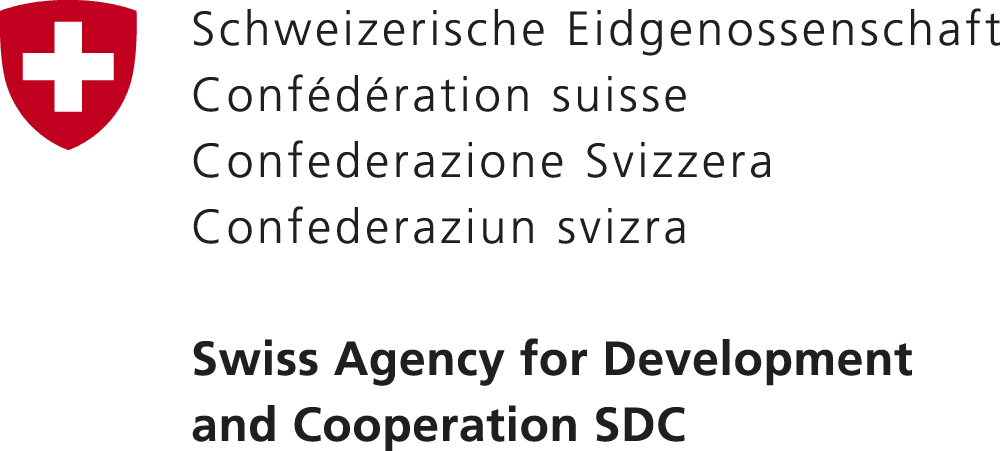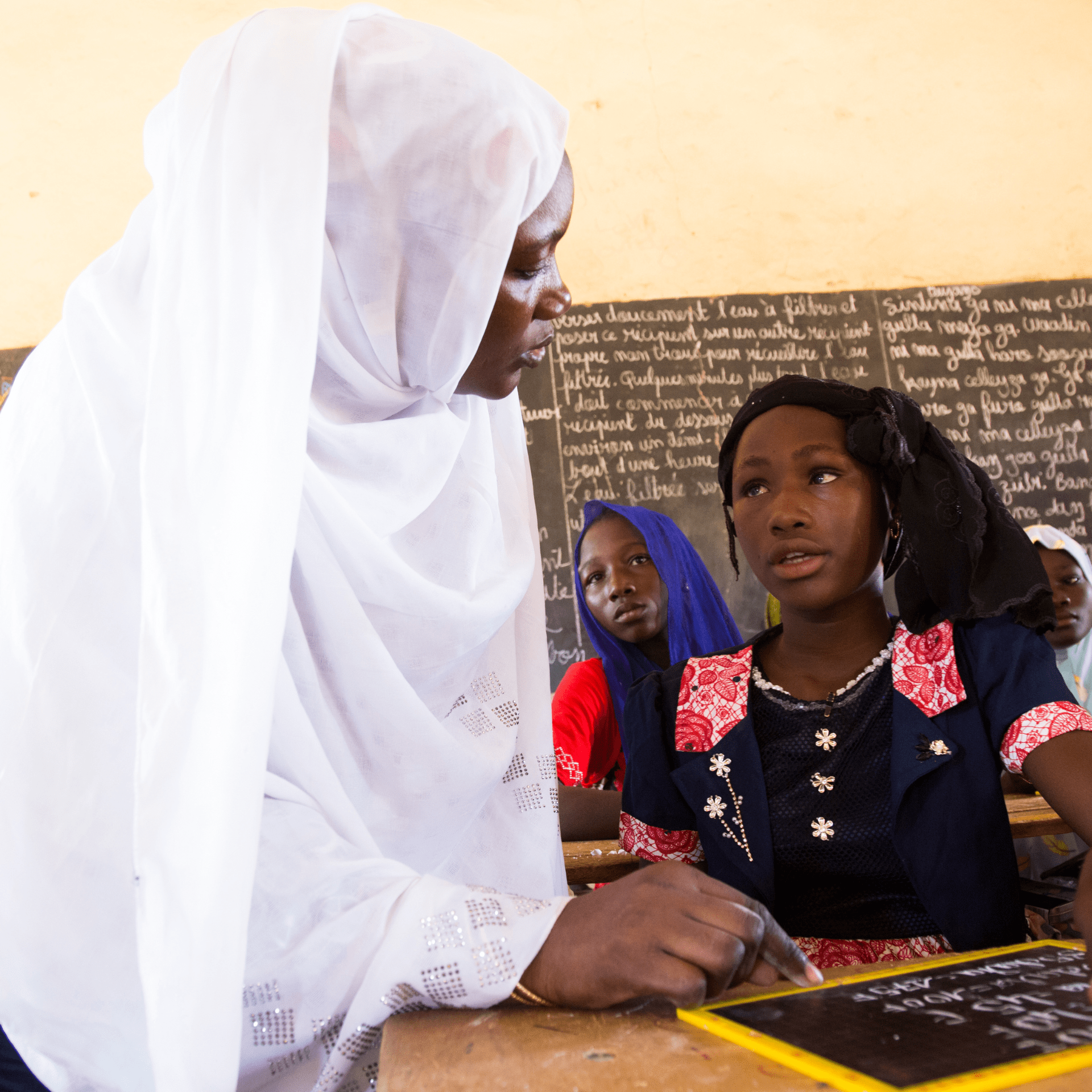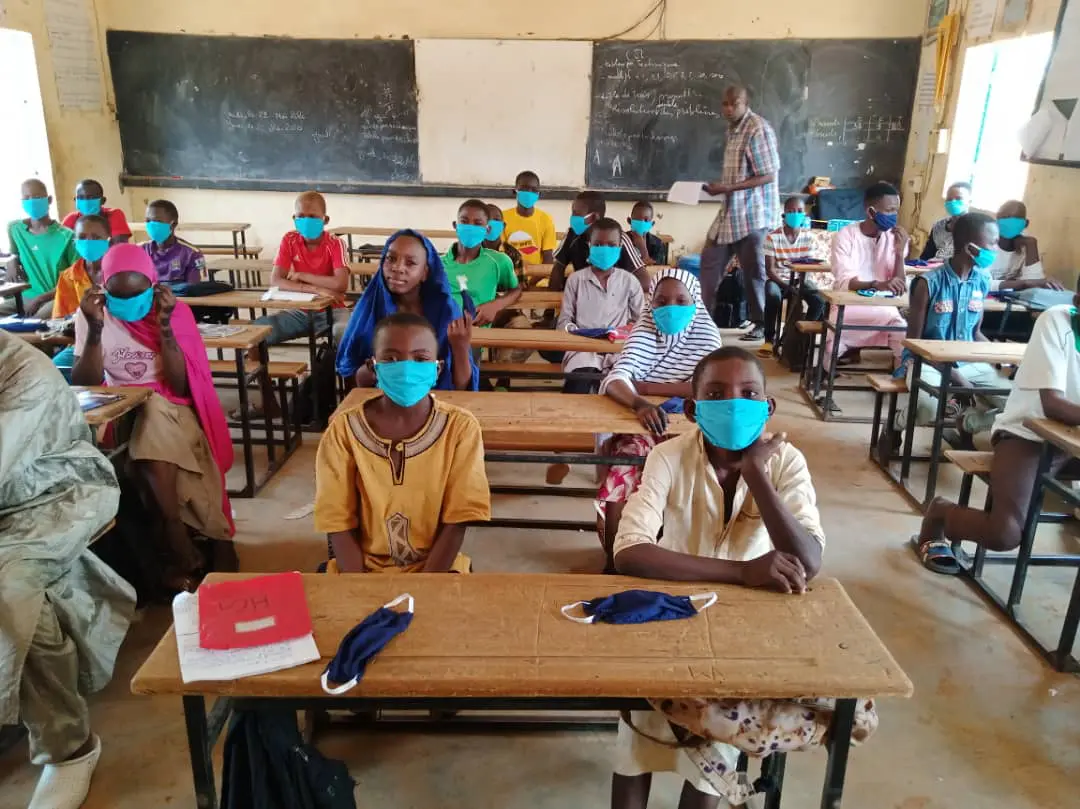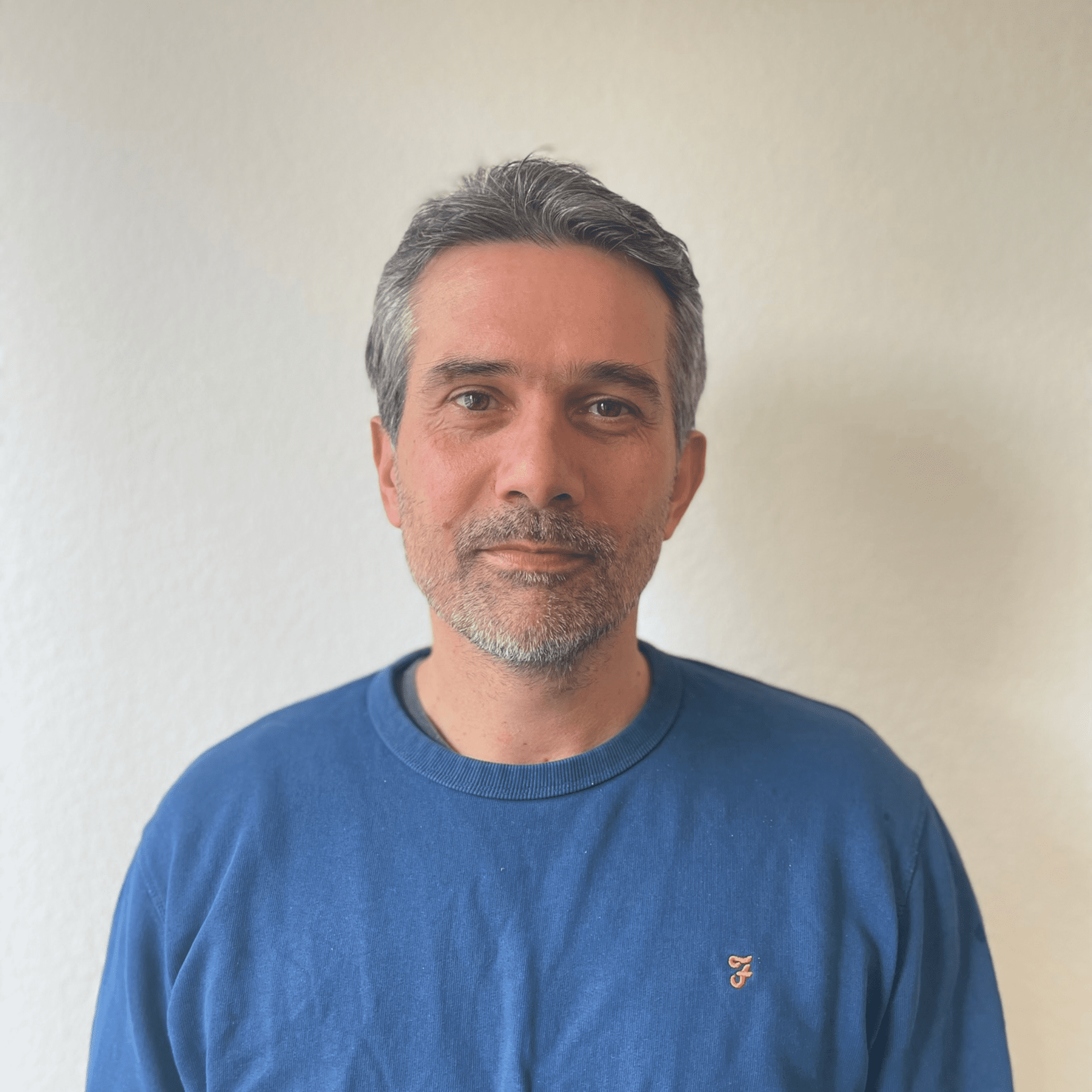
Second Chance Schools
Between 2017 and 2020

914
children and young people received quality primary education

440
students went on to further education or vocational training

12
teachers have been trained in active teaching methods
The Country’s Challenges
In Niger, four out of ten girls and three out of ten boys do not go to school. Most children and adolescents live in poor and vulnerable communities, where abuse, exploitation and violence are often part of their daily lives. Adolescents and young people, especially girls, face many constraints: 76% of them are married before the age of 18; 36% of adolescent girls aged 15 to 19 have already given birth or are pregnant; and only 26.9% are literate, compared to 50.2% of boys.
Offering a Second Chance to Children who Have Dropped out of School
The ‘second chance schools’ supported by Enfants du Monde until 2022, in close collaboration with the Nigerien Organisation of Innovative Educators (ONEN), aim to contribute to improving access to and the quality of education in Niger. They are intended for children aged 9 to 13 who have never been to school or who left school too early, in poor neighbourhoods of the capital Niamey (until 2021) and in the regions of Tahoua (until 2018) and Tillabéry.
What Sets us Apart
We train teachers to deliver lessons in both French, the country’s official language, and the students’ local mother tongue to make learning easier.
- The educational content is tailored to the realities and needs of the children.
- The children also take practical classes, such as sewing and agriculture.
- Students at second-chance schools perform better than students at public schools.
Mariama, 11 years old, student in Niger
I spent two years doing housework and fetching water from the river. At the first school I went to, we were taught only in French. But here, when I don’t understand French, the teacher can explain things to me in Zarma.
Contact our Team
In Switzerland
Sébastien Blat, Sahel Program Manager
info@edm.ch
Financial Partners


My Donation Makes a Difference
I provide bilingual school manuals in French and Mooré (the local language) for 10 children in Burkina Faso, enabling them to make better progress at school.
I allow for 28 pregnant women from Bangladesh and their husbands to take part in a maternal health education session and prepare for childbirth.
I fund a continuing education training in bilingual education for 17 teachers in Guatemala, to improve the quality of their lessons.





